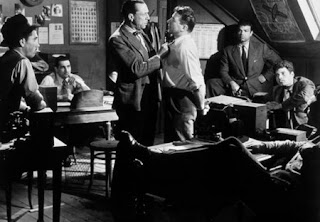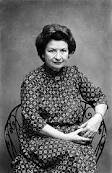T.B.R.
In common with many bookworms, I have 10s (no let's be honest) 100s of unread books on my wooden or virtual shelves. While browsing through book blogs loaded with challenges for 2015 I came across the TBR (To Be Read) challenge, a chance to finally get around to reading all those books that have been sat for far too long on your shelves unread and unloved.
True knights of the TBR challenge would restrict themselves to reading only TBR books for the first few months of the year. This, I'm afraid is too hard for me. I have library books with a Best Before date on them, old friends that I can't neglect, and all those books (apologies friends) that I have been loaned and not got round to reading yet. So rather than go down the Trappist route, I decided to take an easier path. Last year I read 17 TBRs, and this year I'll be happy if I can double that, so how about a 3 a month TBR challenge? 36 neglected books to read over the course of the year.
Coincidentally I had just started Hamid Ismailov's The railway, which had been sitting on my shelves for a while. It's an odd book, at times beautiful, sometimes blazingly angry, occasionally hilarious, with some moments of sexual violence that make for uncomfortable reading.
Ismailov is from Uzbekistan. His book, written in Russian, was written while he was still living in Uzbekistan before he was forced to flee the country. His works are still banned there. Beautifully translated by Robert Chandler, the novel centres around a village and its surrounding communities in the centre of Uzbekistan. In some ways it reminded me of other writers such as Sholem Aleichem and his tales of village life, or the gently satirical world of Don Camillo created by Giovannino Guareschi. Both centre on ordinary lives in small towns, and the impact of the wider world on these rural communities. Ismailov's world, though, is a lot angrier and more uncomfortable.
Set beside the railway line that stretches out across the Soviet Union, the novel also plays gently on religious beliefs. The burial rites of the local Muslims include placing a short ladder by the grave to help the soul from its place of burial to Heaven. The ladder-like structure of the railway also provides a path to elsewhere for Uzbek souls, and it's no coincidence that at some point in the novel many of the characters will go into exile, or be sent to the Gulags, while the huge numbers of nations gathered together in this small world - Uzbeks, Tatars, Jews, Gipsies, Koreans, even a few Volga Germans - owe their current location to previous purges throughout the Russian Empire.
I found it an uncomfortable and oddly disconcerting read. Some parts of The Railway read like an appendix to The Arabian Nights, they have that wonderful other worldliness, that stunning use of language surely taken straight from Sufism and the Persian poets. But some of it is violent, bitter, bloody, even the language is enmeshed in violence. It's also an oddly dislocated read, a selection of short stories that are not able to stand by themselves, but are sometimes at odds with the rest of the novel, moving backwards and forwards in time, and also out of time. And, as I always find with Russian novels, a huge number of characters that I defy anyone to remember how they relate to each other.
I don't think I would re-read The railway, but what I will remember are the moments of beauty and the moments of humour. Certainly worth a read, if only to discover a land that is largely unknown in the West. Stunningly translated, there's a fascinating preface and postscript by the translator that's well worth reading for anyone who's interested in the way that translators work.
True knights of the TBR challenge would restrict themselves to reading only TBR books for the first few months of the year. This, I'm afraid is too hard for me. I have library books with a Best Before date on them, old friends that I can't neglect, and all those books (apologies friends) that I have been loaned and not got round to reading yet. So rather than go down the Trappist route, I decided to take an easier path. Last year I read 17 TBRs, and this year I'll be happy if I can double that, so how about a 3 a month TBR challenge? 36 neglected books to read over the course of the year.
Coincidentally I had just started Hamid Ismailov's The railway, which had been sitting on my shelves for a while. It's an odd book, at times beautiful, sometimes blazingly angry, occasionally hilarious, with some moments of sexual violence that make for uncomfortable reading.
Ismailov is from Uzbekistan. His book, written in Russian, was written while he was still living in Uzbekistan before he was forced to flee the country. His works are still banned there. Beautifully translated by Robert Chandler, the novel centres around a village and its surrounding communities in the centre of Uzbekistan. In some ways it reminded me of other writers such as Sholem Aleichem and his tales of village life, or the gently satirical world of Don Camillo created by Giovannino Guareschi. Both centre on ordinary lives in small towns, and the impact of the wider world on these rural communities. Ismailov's world, though, is a lot angrier and more uncomfortable.
Set beside the railway line that stretches out across the Soviet Union, the novel also plays gently on religious beliefs. The burial rites of the local Muslims include placing a short ladder by the grave to help the soul from its place of burial to Heaven. The ladder-like structure of the railway also provides a path to elsewhere for Uzbek souls, and it's no coincidence that at some point in the novel many of the characters will go into exile, or be sent to the Gulags, while the huge numbers of nations gathered together in this small world - Uzbeks, Tatars, Jews, Gipsies, Koreans, even a few Volga Germans - owe their current location to previous purges throughout the Russian Empire.
I found it an uncomfortable and oddly disconcerting read. Some parts of The Railway read like an appendix to The Arabian Nights, they have that wonderful other worldliness, that stunning use of language surely taken straight from Sufism and the Persian poets. But some of it is violent, bitter, bloody, even the language is enmeshed in violence. It's also an oddly dislocated read, a selection of short stories that are not able to stand by themselves, but are sometimes at odds with the rest of the novel, moving backwards and forwards in time, and also out of time. And, as I always find with Russian novels, a huge number of characters that I defy anyone to remember how they relate to each other.
I don't think I would re-read The railway, but what I will remember are the moments of beauty and the moments of humour. Certainly worth a read, if only to discover a land that is largely unknown in the West. Stunningly translated, there's a fascinating preface and postscript by the translator that's well worth reading for anyone who's interested in the way that translators work.










Comments